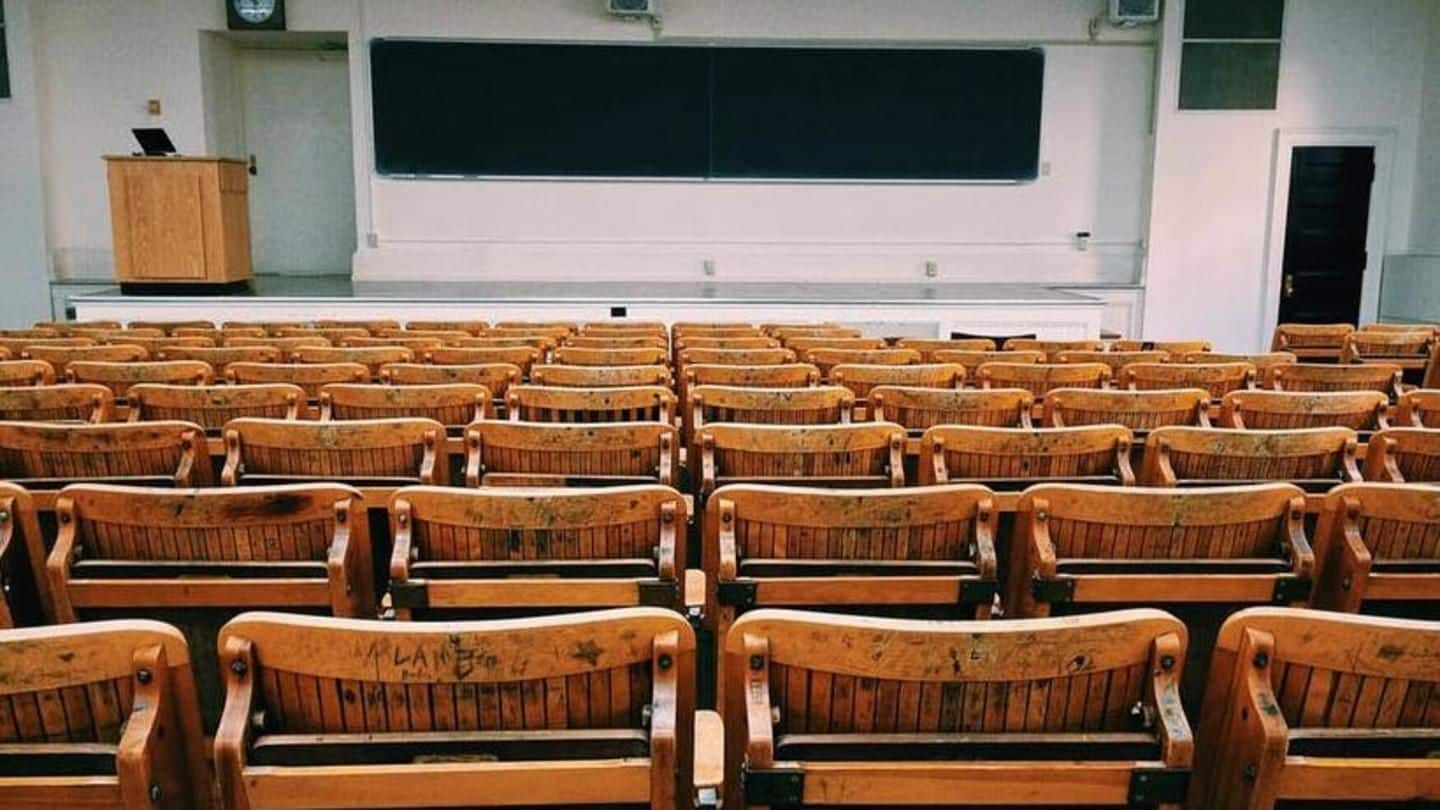
Over 45% engineering seats remained vacant in four years: Government
What's the story
The dismal engineering education sector in India is far from recovery. Over 45% seats in AICTE-approved engineering colleges remained vacant in four years, government data shows. The figure has actually been on a slight rise. AICTE expects the number of seats to reduce by 3.1L in four years. Considering this, it approved the closure of 51 institutes out of 239 which had sought permission.
Data
The graph of vacant seats has been sloping upwards
According to Satya Pal Singh, Minister of State for Human Resource Development, 48.79% seats remained vacant in 2014-15, which dropped marginally to 47.68% (2015-16), before rising to 49.70% (2017-18) and dropping minutely again to 49.30% (2018-19).
Factors
Why are seats lying vacant?
According to Singh, "Enrolment is based on demand-supply, which is attributed to the institute's location, research and infrastructure facilities, and placement." Moreover, many students don't take admission even after clearing entrance-exams: according to Maharashtra DTE, only 42% candidates clearing the MH-CET registered for admission. Raju Davis Parepadan, Chairman of Kerala's Holygrace Academy, says 70% engineering institutes offer poor-quality education, leading to less-interested students.
Colleges
Desperate colleges are now applying for closure
Last year, the AICTE pulled up some few hundred engineering colleges for having less than 30% enrolment over the past five years; 150 had enrolment rates below 20%. There were options for some of them. "Border line case" colleges would be given viable alternatives, AICTE said, like converting to science colleges, skill development centers or vocational education institutions.
Do you know?
But what about their current students?
After scrutiny, 51 colleges have been approved for closure. But their existing students won't be affected and will be allowed to complete their course. The colleges will run till then, but won't enrol new students starting this year.
Courses
Number of engineering courses likely to go down too
The situation is likely to deteriorate further. The AICTE has mandated that by 2022, technical institutions have to have 50% of all their programs accredited from the National Board of Accreditation (NBA). Presently, around 15% of engineering programs in India are accredited. This means colleges that will escape closure might have to cut down on the number of courses on offer.
Measures
The HRD Ministry is taking steps to improve the situation
To attract students, the HRD Ministry has introduced mandatory internships in engineering courses to make them more industry-relevant. It has also launched the National Program on Technology Enhanced Learning which provides e-learning sessions through online courses. According to HRD, only 40% engineering graduates get placements after college. Institutes should thus focus on making students placement-ready by improving the quality of education.